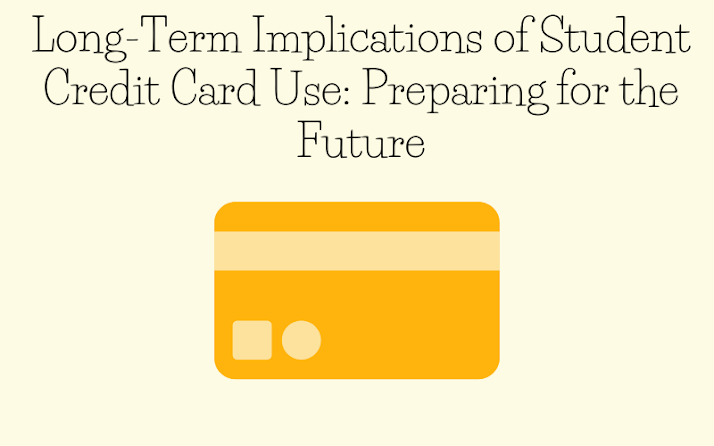Long-Term Implications of Student Credit Card Use: Preparing for the Future
Managing finances as a student can be a challenging task, especially when it comes to navigating the world of credit cards. While credit cards can provide a convenient way to make purchases and build credit history, they also come with potential risks and responsibilities. For students who are seeking alternatives to credit cards, exploring other financial options can be a wise decision. Fortunately, there are various alternatives available that can help students effectively manage their finances and establish a solid foundation for their future. In this article, we will explore some credit card alternatives specifically tailored to meet the unique needs and circumstances of students. From debit cards and prepaid cards to budgeting apps and student-specific financial services, we will delve into the options that offer financial flexibility, convenience, and peace of mind. By considering these alternatives, students can make informed decisions and confidently navigate their financial journeys while staying in control of their spending.

Long-Term Implications of Student Credit Card Use:
Debt Accumulation:
One of the significant long-term implications of student credit card use is the potential for accumulating excessive debt. Students may be enticed by the allure of easy credit and fail to consider the long-term consequences of their spending habits. High-interest rates on credit cards can quickly lead to a cycle of debt, especially if students are unable to make regular payments. This debt burden can persist well beyond graduation, hindering their ability to save, invest, and achieve financial milestones such as buying a home or starting a business.
Credit Score Impact:
Student credit card use can significantly impact credit scores, which play a crucial role in future financial endeavors. Late or missed payments, maxing out credit limits, and carrying high balances can all negatively affect credit scores. A poor credit score can limit access to favorable interest rates on loans, mortgages, and credit cards, making it harder to secure financial opportunities and potentially resulting in higher borrowing costs. Additionally, a low credit score can impact other areas of life, such as rental applications or employment background checks, as landlords and employers often consider creditworthiness as an indicator of responsibility.
Financial Literacy:
The long-term implications of student credit card use highlight the importance of financial literacy. Many students enter college without a solid understanding of personal finance, including budgeting, interest rates, and credit card terms. Lack of financial literacy can lead to poor decision-making, impulsive spending, and a failure to recognize the long-term consequences of credit card use. By prioritizing financial education and developing strong financial literacy skills, students can make informed decisions, manage their credit effectively, and build a solid foundation for their future financial well-being.
Building Positive Credit History:
On the positive side, responsible credit card use during college can help students build a positive credit history, which is essential for their future financial endeavors. By making timely payments, keeping balances low, and using credit cards wisely, students can establish a solid credit foundation. This can open doors to favorable interest rates on loans, enable easier access to credit in the future, and demonstrate financial responsibility to potential employers and landlords. Building a positive credit history early on can set students on a path towards financial stability and provide them with greater opportunities as they transition into the post-graduation phase of their lives.
Bottom line:
When it comes to managing finances as a student, exploring credit card alternatives can provide valuable options for financial stability and responsibility. While credit cards can be beneficial, they may not be the best fit for every student's circumstances or financial goals. By considering alternatives such as debit cards, prepaid cards, budgeting apps, and student-specific financial services, students can find solutions that align with their needs and help them develop healthy financial habits. Ultimately, the key is to choose a financial option that promotes responsible spending, provides convenience, and helps build a strong foundation for a secure financial future.

.png)
Comments
Post a Comment